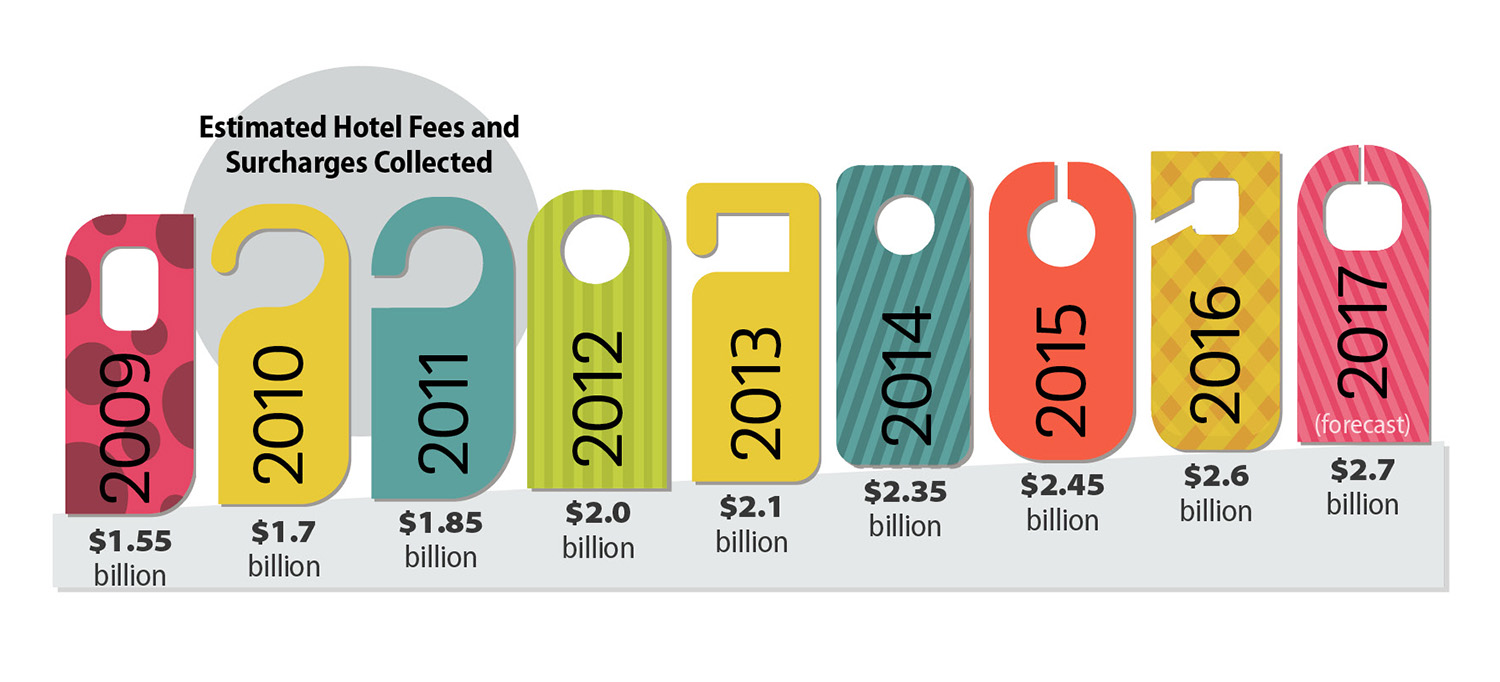As we roll toward the end of 2017, the U.S. hotel market is poised to log another record-breaking year in terms of the dollar amount collected in fees and surcharges—$2.7 billion. The increase for 2017 reflects both a higher number of occupied rooms as well as “slightly more” categories of fees and surcharges, according to Bjorn Hanson, PhD, NYU School of Professional Studies, in a recent Trends Analysis Report.
Hanson is seeing a number of trends in these highly profitable extra charges:
• The largest increase is in fees for cancelled reservations. While many hotels years ago eliminated policies that allowed fee-free, same-day cancelling, a number of hotels are now charging for cancellations within two, and even three, days of arrival.
• Early check-in fees are on the rise, especially at resorts. Hanson reports that there’s been an uptick in the number of hotels charging extra for guests to get in their rooms before the 3:00 p.m. check-in time—even if the room is ready.
• Other recently introduced fees include those for holding checked luggage after checkout, and unattended surface parking.
• For groups, Hanson is seeing new or increased charges for set-up and breakdown of meeting rooms, hiring bartenders and other event staff, and administrative fees for master folio billing.
• On a positive note, hotels are lowering fees and surcharges for high-speed Internet service.
Other examples of hotel fees that planners need to budget for—or negotiate out—include those for early departures, use of the business center, sending and receiving overnight packages, room service delivery, mini-bar restocking, in-room safes, and selecting a specific room type, as well as the more general resort or amenity fee.
Hanson reports that fees and surcharges, which began emerging in the hotel industry about 20 years ago, have increased annually except for periods around 2001 and 2008 when hotel demand declined.





